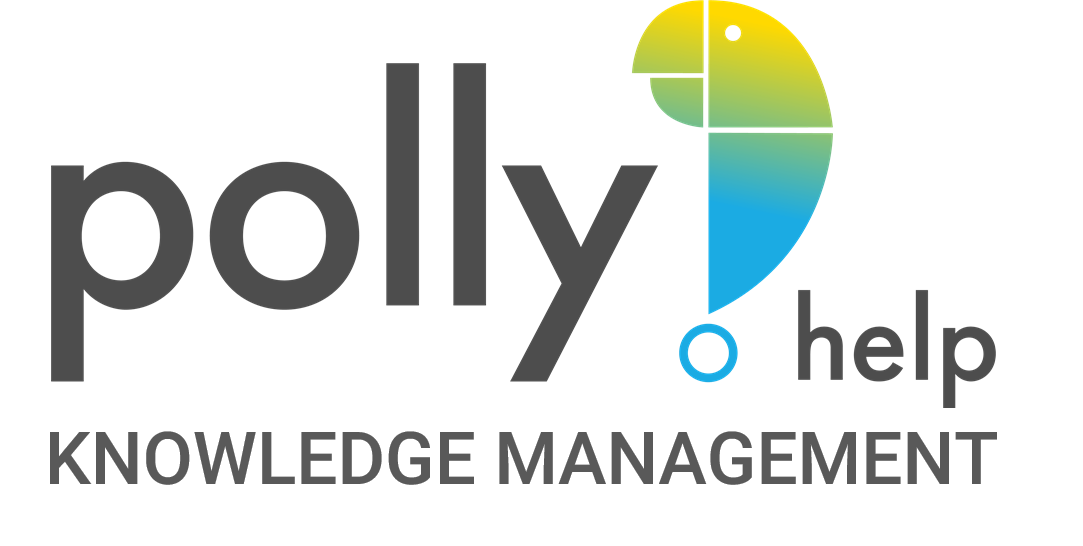In the modern business landscape, Knowledge Management Software plays a crucial role in harnessing and leveraging the vast pool of knowledge that lies within an organization. By consolidating information from a wide array of sources, such as internal communication, content management systems, help desk support FAQs, and employee onboarding materials, Knowledge Management Software facilitates a sustainable competitive advantage and fosters both productivity and agility in the enterprise. Without such a system in place, companies risk losing valuable data, missing opportunities for enhanced employee collaboration, and failing to provide an exceptional customer experience.
Key Takeaways
- Knowledge Management Software is critical for effectively capturing and leveraging an organization’s internal information.
- The use of Knowledge Management Software can lead to a sustainable competitive advantage, fostering productivity and agility in the business.
- Without an effective Knowledge Management solution in place, a company risks losing essential data, hindering employee collaboration, and jeopardizing customer satisfaction.
- Knowledge Management Software encompasses a range of features, including CRM systems, knowledge bases, and Learning Management Systems (LMS), ensuring a comprehensive approach to knowledge organization and access.
- A well-executed Knowledge Management system provides a foundation for sustainable, knowledge-driven innovation within an organization.
Defining Knowledge Management in the Modern Enterprise
In accordance with Gartner’s definition, Knowledge Management (KM) serves as an essential business process that aims to capture and leverage both explicit and tacit knowledge within organizations. In this context, knowledge invariably comes in two distinct forms:
The Diverse Forms of Knowledge Within Organizations
- Explicit knowledge – This type of knowledge is easily documented and shared, with examples ranging from handbooks and sales scripts to process manuals and best practice guides.
- Tacit knowledge – Referring to the skills and experiences of employees, tacit knowledge is not as readily articulated but holds significant value in driving innovation and fostering a collaborative culture within organizations.
Given the pivotal role of KM in driving productivity and collaboration, it is crucial for businesses to invest in robust Knowledge Management Software (KMS) that delivers a comprehensive and cohesive approach to creating, capturing, organizing, accessing, and utilizing information assets.
Essential Characteristics of Knowledge Management Software
Effective KM software must exhibit the following essential characteristics:
- Single point of access – A KMS must facilitate a singular point of access to information, ensuring that employees can seamlessly locate and retrieve necessary data to support decision making and collaboration.
- Integration with existing tools – A KMS should be capable of seamless integration with existing tools like CRM systems, Learning Management Systems (LMS), and other databases that store important organizational knowledge.
- Preservation of intellectual assets – A KMS must work to preserve intellectual assets such as key learnings, processes, and best practices within organizations to prevent knowledge loss and ensure continuity of operations.
- Scalability – A KMS should offer scalability to accommodate an organization’s growth and evolving requirements in managing knowledge effectively.
Ultimately, implementing a suitable KMS is imperative for organizations to successfully capitalize on their vast reservoirs of knowledge and effectively channel this invaluable resource to foster growth, innovation, and collaboration.
Critical Reasons Why Knowledge Management Matters
Knowledge Management (KM) has evolved into a significant determinant of business success, as supported by Deloitte’s research, which demonstrates that the true potential of KM goes beyond just documentation and dissemination. Embracing effective KM systems is crucial for organizations due to a variety of reasons, such as preserving knowledge, boosting performance, enhancing agility, and significantly improving overall processes and innovation.
The following list highlights some key reasons for the indispensability of Knowledge Management within modern organizations:
- Preserving organizational knowledge: KM systems store an organization’s knowledge assets systematically, ensuring that valuable information is not lost.
- Boosting performance: By providing easy access to essential knowledge, employees are empowered to make better decisions and perform their tasks more effectively.
- Enhancing agility: KM systems promote adaptability and flexibility by helping organizations learn from past experiences and adapt to changing market conditions.
- Improving processes and innovation: Encouraging knowledge sharing and collaboration across departments results in the development and implementation of more efficient processes and innovative products and services.
In addition to the above-mentioned critical reasons, the following table showcases the financial advantages of implementing effective Knowledge Management systems within an organization:
| Benefit | Estimated Financial Impact |
|---|---|
| Reduced search time | 10-20% reduction in employee time spent searching for information |
| Improved decision-making | Increased overall productivity by 10-15% |
| Enhanced innovation | Up to 25% increase in new product sales revenue |
| Reduced knowledge loss | Significant cost savings through retained expertise and minimized employee turnover |
As evident from the table, the financial impact of effectively managing an organization’s knowledge can be massive. It leads to improved productivity, innovation, and minimized costs associated with employee turnover and knowledge loss. With such significant benefits, organizations must prioritize investing in comprehensive and well-integrated Knowledge Management systems to sustain a competitive edge in today’s ever-evolving business landscape.
The Role of Knowledge Management in Organizational Agility
Organizational agility corresponds to a company’s capability to adapt and respond effectively to changes in a constantly evolving business environment. One of the most potent tools for achieving such prowess is Knowledge Management. By fostering the seamless flow of both tacit and explicit knowledge, companies can reliably streamline their operations, instill a culture of innovation, and empower employees to tackle emerging challenges proficiently.
Encouraging Knowledge Flow to Enhance Responsiveness
The primary aspect of Knowledge Management which contributes to organizational agility is its ability to encourage knowledge flow. Knowledge Management software consolidates relevant knowledge from different sources and makes it readily accessible to employees. By implementing strategic processes for producing, capturing, and sharing insights, the entire organization is better poised to contribute to improved responsiveness and agility.
- Explicit knowledge: Comprises of documented information such as handbooks, sales scripts, and manuals. These are easily transferrable, making them amenable to organization-wide sharing.
- Tacit knowledge: Relates to an employee’s individual skills, experiences, and insights, which are often difficult to articulate in writing. Knowledge Management software facilitates the exchange of this valuable knowledge by promoting collaborative learning and team discussions.
By leveraging Knowledge Management software, organizations not only ensure the efficient flow of knowledge throughout their workforce but also provide a platform for maximizing the overall potential of intellectual assets. Such fluency helps break down informational silos, bridge knowledge gaps, and ultimately increases an organization’s capacity for innovation and problem-solving – hallmarks of agile enterprises.
How Knowledge Management Software Fosters Collaboration
Knowledge Management Software is instrumental in bolstering collaboration within organizations, achieving this by breaking down information silos and creating a living knowledge base. Employees can leverage this dynamic platform to contribute their expertise across various departments, promoting synergy and cohesive communication. As a result, teams become better equipped to deliver value efficiently, foster cultural collaboration, and optimize organizational efforts through enhanced shared intelligence.
One of the core benefits of implementing Knowledge Management Software is unifying internal communication, which improves transparency and encourages a proactive exchange of resources and ideas. By eliminating these information silos, employees can easily identify valuable insights that may have previously been obscured or difficult to locate. This increased visibility enables diverse departments to collaborate on projects and capitalize on the comprehensive expertise available within the organization.
Additional advantages of utilizing Knowledge Management Software to boost collaboration include:
- Streamlined project management, ensuring all team members are informed and involved in ongoing initiatives
- Enhanced team coordination, eliminating redundancies in communication and overall improving efficiency
- Fostering a sense of ownership and accountability by encouraging employees to actively contribute their knowledge and expertise
Moreover, Knowledge Management Software can stimulate innovation by encouraging employees to constructively engage with the collective ideas dispersed throughout the organization. Through this collaborative environment, businesses can capitalize on a wealth of shared intelligence for problem-solving and decision-making at every level.
| Feature | Benefits |
|---|---|
| Single Point of Access | Eradicates information silos and simplifies the process of locating relevant assets |
| Centralized Knowledge Base | Promotes a culture of shared intelligence and creates a thriving environment for collaboration |
| Advanced Search Capabilities | Saves time and ensures employees can quickly find precise information needed for their tasks |
| Content Contribution Tools | Empowers employees to actively participate in creating and curating knowledge, promoting a sense of ownership |
In conclusion, Knowledge Management Software plays a pivotal role in fostering collaboration within organizations by dismantling information silos and cultivating a living knowledge base accessible to all employees. By implementing this software, businesses can capitalize on an improved flow of knowledge and information, ultimately promoting innovation, efficiency, and collaboration across departments.
The Impact of Knowledge Management on Decision Making
Knowledge Management Software plays a crucial role in enhancing the decision-making process within organizations. By consolidating and organizing an array of relevant information, employees can access comprehensive data and insights that facilitate better decision-making and significantly impact a business’s responsiveness.
Empowering Teams with Accessible Information
Effective Knowledge Management Software ensures that employees have seamless access to essential data embedded within the collective experience and know-how of the organization. This treasure trove of actionable insights empowers teams to make informed decisions, leading to significant improvements in:
- Operational efficiency
- Resource allocation
- Risk management
- Collaborative problem-solving
The influence of accessible information on decision-making can be further illustrated by examining the following benefits:
| Benefit | Description |
|---|---|
| Reduced Cognitive Load | Knowledge Management Software alleviates the mental stress associated with searching and processing vast amounts of information, allowing employees to focus more on critical thinking and informed decision-making. |
| Improved Collaboration | With easy access to information, employees can better collaborate, pooling their ideas and data to make more accurate and strategic decisions as a cohesive unit. |
| Rapid Response | Instant access to essential information enables quicker decision-making, leading to a more agile and responsive business capable of thriving in a fast-paced, ever-changing market. |
| Innovative Solutions | A data-driven foundation allows employees to think outside the box, finding inventive solutions to challenges and subsequently enhancing the organization’s overall performance. |
Ultimately, Knowledge Management Software contributes significantly to enriching the decision-making process, driving responsive capabilities and elevating the strategic prowess of businesses in today’s competitive environment.
Facilitating Knowledge Transfer and Continuity
An effective Knowledge Management System is vital in facilitating the seamless transfer of knowledge within an organization, ensuring business continuity despite inevitable changes. It effectively circumvents knowledge loss due to employee turnover, by retaining and standardizing knowledge in a central repository that supports both onboarding and ongoing learning processes.
Knowledge Management Systems accomplish this by adopting several fundamental strategies:
- Establishing a central knowledge repository accessible to all employees
- Encouraging a culture that values knowledge sharing and continuous learning
- Creating a standardized process to capture, store, and disseminate knowledge
- Applying the most suitable search and retrieval mechanisms for informational resources
Investing in a robust Knowledge Management System fosters a strong foundation for knowledge transfer and preservation, contributing significantly to long-term organizational health. The table below illustrates some key benefits of effective knowledge transfer and continuity:
| Benefits | Examples |
|---|---|
| Reduced knowledge loss during employee turnover | Expertise and experiences of outgoing employees are documented and readily accessible to newcomers |
| Efficient onboarding and training | Streamlined employee onboarding materials, reducing training time and ensuring consistency |
| Better decision making | Access to accurate, up-to-date information enables informed decision-making across all levels of an organization |
| Improved business continuity | Smooth transition of essential knowledge during organizational changes, such as mergers, acquisitions, and restructuring |
In conclusion, adopting a well-designed Knowledge Management System is crucial for organizations to ensure seamless knowledge transfer and maintain an advanced level of business continuity. Establishing a reliable framework that supports the capturing, organizing, and accessing of crucial information empowers organizations to adapt to changes, mitigate risks, and harness the full potential of their intellectual assets.
Streamlining Organizational Processes and Efficiency
By consolidating knowledge into a single management system, organizations can streamline their processes, reducing duplicated efforts, and enhancing efficiency. Effective information sharing within a Knowledge Management (KM) system means employees swiftly locate necessary data without redundancy, thus yielding improved productivity and significant cost savings at scale.
Reducing Duplicated Efforts Through Effective Information Sharing
One of the major challenges that organizations face is the potential for duplicated efforts among employees. This arises when individuals work on similar tasks without awareness of each other’s endeavors, leading to a waste of time, resources, and slowed progress overall. Knowledge Management Software addresses this challenge by creating a centralized knowledge base that facilitates easy accessibility and improved collaboration.
- Improved accessibility of company information and resources
- Real-time updates to ensure the most recent and accurate data
- A robust search functionality that makes locating information effortless
- A collaborative platform for employees to share their expertise and experiences
Through these features, a KM system helps in streamlining organizational processes by breaking down information silos, providing a single point of access to all relevant information and resources, and fostering a culture of collaboration within the organization. This not only reduces duplicated efforts but also promotes the efficient use of available resources, leading to notable improvements in productivity.
| Aspect | Without Knowledge Management | With Knowledge Management |
|---|---|---|
| Collaboration | Information silos, duplicated efforts | Centralized knowledge base, collaborative environment |
| Accessibility | Scattered information, hard-to-find data | Single point of access, improved search functionality |
| Efficiency | Wasted resources, slowed progress | Optimized processes, increased productivity |
| Cost Savings | Higher resource consumption, reduced profitability | Lower expenses, increased profitability |
As evident from the table, incorporating a Knowledge Management system translates into better collaboration, increased accessibility, enhanced efficiency, and cost savings at scale. By addressing the issue of duplicated efforts and streamlining processes, organizations can unlock the full potential of their resources and bolster their overall productivity for long-lasting success.
Encouraging Innovation Through Knowledge Discovery
In today’s competitive business landscape, innovation is a key driver for growth and success. One of the critical factors influencing innovation in organizations is effective knowledge discovery, which is significantly facilitated by Knowledge Management Software. Well-organized knowledge repositories enable the systematic storage and retrieval of vital information, empowering businesses to create groundbreaking products, services, and processes.
Knowledge Management Software accelerates the process of knowledge discovery by providing employees with quick and easy access to the organization’s collective wisdom. When employees have access to a centralized and organized information system, they are more likely to contribute to the ideation, development, and advancement of innovative projects. Furthermore, by connecting employees across teams and departments, Knowledge Management Systems can break down barriers and foster a culture of collaboration and creativity.
The Benefits of Knowledge Discovery for Innovation
- Harnessing Diverse Perspectives: A comprehensive knowledge management system allows employees to tap into the skills, expertise, and opinions of their colleagues, providing a richer and more diverse pool of ideas to draw from when developing new products or services.
- Identifying Patterns and Trends: By consolidating historical data, trends, and best practices within the organization, Knowledge Management Software can help employees identify new opportunities for growth and improvement, paving the way for breakthroughs in their respective fields.
- Fostering a Culture of Continuous Learning: Encouraging a culture of continuous learning and knowledge discovery enables businesses to remain agile and adaptable in the face of rapidly changing market conditions, ensuring they are better positioned to stay ahead of competitors.
- Reducing Time-to-Market: By providing access to essential information, knowledge discovery can speed up the development process for innovative products and services, enabling organizations to get their offerings in front of customers more quickly and efficiently.
In conclusion, Knowledge Management Software plays a crucial role in encouraging innovation by supporting knowledge discovery. Access to well-organized and centralized knowledge repositories fosters the development of inventive products, services, and processes, ultimately driving business growth and competitive advantage in an increasingly crowded market.
Knowledge Management as a Tool for Remote Work Enablement
As more organizations shift towards remote work arrangements, knowledge management software has become a critical tool for ensuring seamless communication and collaboration amongst distributed teams. Employees require access to reliable information and essential data, whether they are working from home, co-working spaces, or geographic locations that differ from their main office. A proper knowledge management system not only supports remote work but enhances productivity and overall satisfaction by maintaining a virtual office environment that fosters collaboration and allows employees to feel connected.
Supporting a Distributed Workforce with Reliable Information Access
Providing remote employees with easy access to information and centralized resources is critical in supporting their day-to-day tasks and overall performance. In fact, it can play a vital role in:
- Improving project management
- Ensuring seamless collaboration within teams
- Maintaining team efficiency and strategic alignment
A knowledge management system that’s tailored to the needs of a remote workforce can deliver the following benefits:
- Empower employees with instant access to the most updated and relevant information
- Reduce time spent searching for documents and resources
- Facilitate a secure environment to collaborate on projects and tasks, regardless of location
- Help retain valuable organizational knowledge despite employee turnover and organizational changes
- Boost employee engagement and satisfaction
| Features of Knowledge Management Software for Remote Work | Examples of Tools |
|---|---|
| Cloud-based Content Management System (CMS) | SharePoint Online, Box, Google Drive |
| Collaboration and Communication Tools | Slack, Microsoft Teams, Trello, Asana |
| Task and Project Management Tools | Basecamp, Monday.com, Wrike |
| Knowledge Base Systems | Zendesk, Confluence, Helpjuice |
| Learning Management Systems (LMS) | Thinkific, TalentLMS, Moodle |
Ultimately, it’s essential for organizations to leverage knowledge management as a tool for remote work enablement, ensuring that distributed workers have access to reliable information and the resources necessary to thrive in a virtual environment. A robust knowledge management system that accommodates the unique needs of remote teams can create a collaborative, engaging, and productive experience for all employees.
Improving Employee Onboarding with Knowledge Base Software
Knowledge Base Software significantly enhances the employee onboarding process by serving as a centralized, up-to-date repository for crucial organizational knowledge. It ensures that new hires receive pertinent and consistent information, laying the groundwork for their comprehension of company procedures, culture, and expectations.
Adopting Knowledge Base Software for onboarding offers several noteworthy advantages, such as:
- Efficient communication of company values and objectives
- Streamlined HR documentation processes
- Reduced training time and resource usage
- Increased employee autonomy with self-guided learning materials
- Faster assimilation into company culture
A well-structured onboarding program leveraging Knowledge Base Software helps retain employees by fostering a sense of engagement, alignment and satisfaction from the outset. In turn, this reduces turnover and its associated costs, driving higher productivity throughout the organization.
Elements of an Effective Knowledge Base for Onboarding
An impactful Knowledge Base for employee onboarding incorporates several critical components to ensure new hires have a strong foundation for success within the organization:
| Component | Description |
|---|---|
| Company Policies and Procedures | Clearly outlined guidelines for employee conduct, expectations, and operations to establish a shared understanding of company standards. |
| Role-Specific Training Material | Comprehensive information, resources, and tools tailored to an employee’s responsibilities and tasks to aid in acclimating to their new role. |
| Organizational Knowledge Repository | A searchable archive containing accumulated company knowledge, including historical data, best practices, and valuable insights from colleagues. |
| FAQs and Troubleshooting Guides | Collated Frequently Asked Questions and solutions to common issues to assist new employees in overcoming obstacles without delay. |
| Onboarding Checklists and Milestones | Well-defined, chronological lists of tasks and objectives for new hires to monitor and track their onboarding progress. |
A well-designed Knowledge Base reduces the learning curve associated with new employee onboarding, expediting the process and empowering employees to contribute more quickly to the organization’s goals and objectives. Ultimately, Knowledge Base Software strengthens the foundation of a thriving, productive workforce by offering an accessible and unified platform for critical corporate knowledge.
Knowledge Management’s Role in Compliance and Governance
Knowledge Management (KM) practices play a crucial role in compliance and governance, particularly when it comes to safeguarding intellectual property and meeting regulatory requirements. By ensuring essential documents and data are easily accessible to authorized personnel, KM prevents loss or theft of valuable company information while upholding security and privacy standards.
Protecting Intellectual Assets and Meeting Regulatory Requirements
Implementing a robust KM system helps organizations achieve several goals related to compliance and governance, such as:
- Preserving crucial company documents and intellectual property
- Reducing the risk of information breaches and data loss
- Maintaining confidentiality of sensitive information
- Ensuring adherence to industry-specific regulations and standards
- Streamlining audits and internal evaluations of compliance-related processes
Effective KM systems typically offer user roles and permission settings, enabling businesses to control access to sensitive information. This way, only authorized individuals can access or modify critical company documents. Additionally, KM solutions help with version control and document tracking, simplifying the regulatory compliance process by maintaining an organized record of document changes.
Another often overlooked aspect of KM’s role in compliance and governance is its ability to support employee awareness and training initiatives. Industry regulations are subject to change, and it’s vital for organizations to stay up-to-date on new requirements. A comprehensive KM system provides a centralized resource for storing, sharing, and updating information on regulatory requirements, ensuring employees stay informed and compliant.
In conclusion, Knowledge Management systems are essential in maintaining compliance and governance within an organization. With a strong KM platform in place, companies can protect their intellectual assets, meet regulatory requirements, and foster a secure, compliant work environment.
Enhancing Customer Experience with Integrated Knowledge Solutions
Integrated Knowledge Solutions play a crucial role in elevating the customer experience through a Knowledge Management System. By utilizing self-service knowledge bases and granting employees rapid access to customer-related information, businesses can offer more efficient, well-informed, and high-quality service to their clients. In this section, we delve into the benefits of integrated knowledge solutions and their impact on customer service.
Several advantages emerge from incorporating integrated knowledge solutions within a Knowledge Management System, which ultimately leads to an enhanced customer experience:
- Self-service knowledge bases allow customers to find answers and solutions to common issues independently, ultimately reducing wait times and promoting customer satisfaction.
- Employees gain instant access to a wealth of customer-related data, which empowers them to deliver prompt, accurate assistance to clients.
- By consolidating customer information within a centralized system, businesses can effectively identify patterns and trends, fueling improvements in products and services.
- Streamlined communication among employees enables businesses to provide consistent and coordinated support, building trust and loyalty with clients.
Key Components of Integrated Knowledge Solutions
There are several components that make up an effective integrated knowledge solution in a Knowledge Management System:
| Component | Description |
|---|---|
| Knowledge bases | A centralized repository of information that allows customers to search and find answers to common questions and issues. |
| Help desk support | A system that organizes and tracks customer support requests, enabling businesses to improve response times and provide efficient assistance. |
| FAQs | A compilation of frequently asked questions aimed at addressing common customer inquiries quickly and effectively. |
| Employee training materials | Resources dedicated to ensuring that employees have the necessary knowledge and skills to provide high-quality customer service. |
In conclusion, the adoption of integrated knowledge solutions within a Knowledge Management System significantly enhances customer experience. Giving customers access to self-service knowledge bases and ensuring that employees have real-time customer information enables businesses to deliver prompt, informed, and exceptional service tailored to their clients’ needs.
Assessing the Financial Impact of Knowledge Management Practices
Implementing knowledge management practices can significantly impact an organization’s financial position, potentially resulting in millions of dollars in savings. These financial benefits are often a result of decreased search time, increased decision-making efficiency, smoother information access, and the reduction of redundant tasks. This section will explore the tangible and intangible benefits associated with effective knowledge management systems.
Organizations that employ knowledge management systems successfully experience an array of both tangible and intangible benefits. Monetary savings are derived from several aspects of an organization’s operations, as highlighted in the following list:
- Reduced search time
- Increased decision-making efficiency
- Streamlined information access
- Elimination of redundant tasks
By promoting a culture of shared knowledge, organizations also reap intangible benefits that drive employee engagement, collaboration, and innovation, indirectly contributing to financial growth. Comparing the financial impacts of implementing knowledge management practices to those of more traditional management approaches showcases the value of implementing effective systems.
Financial Comparisons of Knowledge Management Approaches
| Aspect | Traditional Management | Knowledge Management |
|---|---|---|
| Search Time | Time-consuming search processes for internal information | Quick access to centralized knowledge databases |
| Decision-making Efficiency | Decisions heavily influenced by individual experience and expertise | Decisions based on collective organizational knowledge |
| Information Access | Information silos persist, limiting the flow of knowledge | Streamlined and centralized access to shared knowledge |
| Redundant Tasks | Work duplicated due to lack of communication and knowledge sharing | Reduced duplication of efforts through effective information sharing |
As shown in the table above, knowledge management practices offer significant financial benefits over traditional management approaches. By fostering a culture that values shared information and collaboration, organizations can unlock tremendous cost savings and productivity improvements. The financial impact of implementing knowledge management systems is therefore a compelling argument for businesses to modernize and optimize their knowledge-sharing practices.
Conclusion
Embracing the potential of Knowledge Management Software can lead to transformative outcomes for businesses across various sectors. Effective implementation of such systems fosters organizational agility, cultivates a collaborative environment, safeguards intellectual property, and paves the way for sustainable, knowledge-driven progress. By harnessing the power of Knowledge Management, companies are empowered to leverage their most valuable resource: knowledge itself.
From enhancing overall productivity and collaboration to streamlining organizational processes, Knowledge Management Systems boost efficiency while contributing to cost savings. Their role in seamless knowledge transfer optimizes employee onboarding experiences and promotes a central knowledge repository that withstands changes within organizations. Moreover, these integrated knowledge solutions propel innovation and improve customer experiences, enabling businesses to exceed expectations and capture a competitive advantage.
Ultimately, the deployment of Knowledge Management Software is crucial for organizations aiming to capitalize on collective intelligence and maintain a strong foothold in an ever-evolving business landscape. Investing in such systems can undoubtedly propel an organization’s success, igniting a culture of shared knowledge and fostering continuous improvement.
FAQ
What is the importance of Knowledge Management Software?
Knowledge Management Software is vital in modern business for leveraging the scattered knowledge within an organization, enhancing internal communication, content management systems, help desk support FAQs, employee onboarding materials, and more. It plays a key role in converting knowledge into value, fostering agile and productive enterprises, and ensuring sustainable competitive advantage.
What are the diverse forms of knowledge within organizations?
Organizations contain both explicit and tacit knowledge. Explicit knowledge is easily documented and shared, such as handbooks and sales scripts. Tacit knowledge includes the skills and experiences of employees that are not as easily articulated.
How does Knowledge Management Software enhance collaboration?
KM software bolsters collaboration by breaking down information silos and creating a living knowledge base. Employees can contribute their expertise across organizations, promoting cultural collaboration, and optimizing organizational efforts through shared intelligence.
How does Knowledge Management impact decision making?
By providing accessible information and consolidating the organization’s collective experience and know-how, Knowledge Management Software empowers teams to make better, informed decisions. This positively impacts business responsiveness and overall performance.
What is the role of Knowledge Management in organizational agility?
KM enables the flow of knowledge within organizations, fostering innovation and enhancing responsiveness to changing business landscapes. By leveraging KM software, businesses can ensure that both tacit and explicit knowledge is shared, preparing employees to handle emerging challenges efficiently.
How can Knowledge Management Software streamline organizational processes and efficiency?
By consolidating knowledge into a single management system, organizations can reduce duplicated efforts and enhance efficiency. Effective information sharing within a KM system allows employees to swiftly locate and access necessary data, leading to improved productivity and cost savings at scale.
Why is Knowledge Management important for remote work enablement?
KM software is essential in providing reliable access to vital information for remote workers, supporting distributed workforce productivity and team collaboration. By offering easy access to critical data, virtual offices can maintain efficient project management and ensure employee satisfaction.
How can Knowledge Management Software improve employee onboarding?
Knowledge Base Software offers a singular, up-to-date source of corporate knowledge for new employees, ensuring that they receive relevant and consistent information about company procedures, culture, and expectations, and thus expediting the onboarding process.
What is Knowledge Management’s role in compliance and governance?
KM practices play a critical role in safeguarding intellectual property and meeting regulatory requirements. Effective Knowledge Management Systems ensure that essential documents and data are accessible to authorized personnel while maintaining privacy and security measures against cybersecurity threats and intellectual property theft.
How does Knowledge Management Software enhance customer experience?
By offering self-service knowledge bases and ensuring that employees have immediate access to customer-related information, KM software allows businesses to provide faster, more informed, and higher-quality service to clients, significantly improving the overall customer experience.






